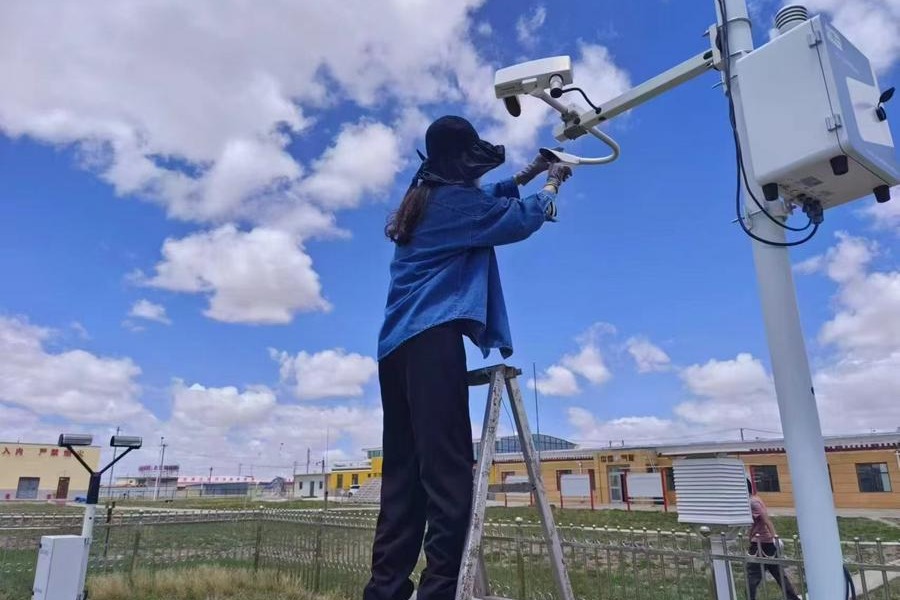Delivering social benefits
Initiatives taken by e-commerce platforms JD and Meituan bring relief to thousands of delivery workers


Different programs
Delivery workers often have flexible working schedules and locations, as well as varied employment relationships. Some have exclusive and long-term employment relations with platforms, while others work part-time across multiple platforms.
These characteristics have made it difficult for companies to include delivery workers under the current social insurance framework.
Last year, China had around 15 million delivery workers, a 15.38 percent increase from the previous year, according to the blue-collar employment survey report by the research center of new forms of employment.
To protect laborers, China's social insurance system includes five major components: pension, as well as medical, unemployment, occupational injury and maternity insurances. Premiums are usually shared between employers and employees.
At the end of February, JD announced that it would begin covering full social insurance plus a housing provident fund for all full-time takeout delivery workers starting March 1, becoming the first platform to take this step. The company has also been providing similar coverage for its express delivery personnel.
According to JD, the platform covers the full cost of social insurance premiums to ensure that delivery workers' take-home income remains unaffected. The policy applies to both current and new employees with formal contracts.
As of March, JD employed around 10,000 full-time takeout delivery workers. The company also announced that it would provide accident and health insurance for its part-time couriers.
On April 15, JD announced that it would employ at least 50,000 full-time takeout delivery workers during this quarter and promised to provide them with full social insurance and housing provident fund.
Meanwhile, Meituan, which has over 820,000 active delivery workers, has adopted a different approach to fulfill its promise. It launched pilot pension programs in two cities.
These pilots are based on the national social insurance policy for flexible workers. Under the program, delivery workers whose monthly income meets the local minimum contribution base and who have met this threshold for at least three out of the past six months can receive a 50 percent subsidy from Meituan toward their pension premiums. Riders can also choose to contribute in their city of employment or their hometown.
In Quanzhou, one of the pilot cities, the pension contribution base for flexible workers is set at 4,433 yuan ($608) per month. Since pension premiums account for 20 percent of income, the total contribution for workers whose income is at this level will be 886.6 yuan. Under Meituan's new policy, the rider pays 443.3 yuan, and the company pays the other half.
"The program has no qualification requirements, no location restrictions, no minimum working hours or order delivery volume, and no limitations on delivery type," Meituan announced on its official WeChat account.
As long as workers meet the national standards for flexible employment insurance, they are eligible to participate in the pension program, and there is no need to sign any commitment or contract, according to Meituan. Riders who voluntarily pay the premium in a given month will automatically qualify for the platform's subsidy.
- Delivering social benefits
- Shenzhou XIX crew returns safely to 'beautiful, blue' Earth
- International Workers' Day: Ordinary work, extraordinary workers
- AI agent to improve international law services in Shanghai
- Intl Services Shanghai expands reach with launch of Italian-language website, multimedia platforms
- China opened more than 900 national wetland parks in over two decades





































